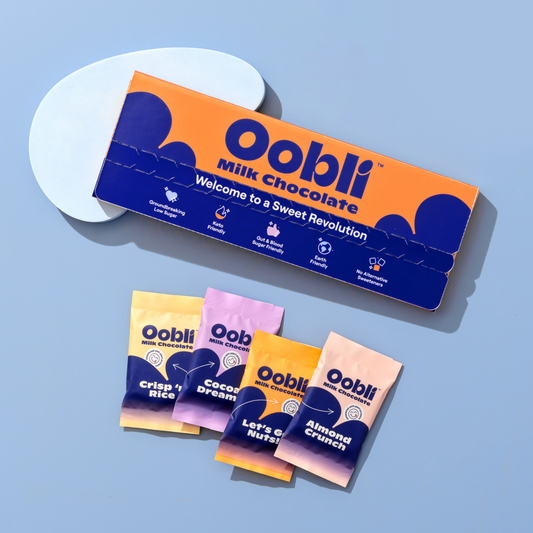Managing blood sugar is a daily challenge for people with diabetes, and choosing the right sugar substitute is a crucial part of that journey. With so many options on the market, from natural to artificial sweeteners, it can be confusing to know what’s truly safe and effective. Are all sugar substitutes created equal? Let’s explore.
Why Do Diabetics Need to Lower Sugar Intake?
Diabetes affects how your body processes glucose, a major source of energy. For people with diabetes, consuming added sugar can lead to dangerous spikes in blood sugar levels, increasing the risk of serious health issues like heart disease, nerve damage and kidney problems. Limiting added sugars isn't just helpful, it’s essential for long-term diabetes management and overall health.

Types of Sugar Substitutes
Sugar substitutes are sweeteners used in place of table sugar. They go by many names, including natural sweeteners, artificial sweeteners and low- or no-calorie sweeteners. Most are far sweeter than sugar, requiring only small amounts to achieve the desired sweetness.
Natural sugar alternatives tend to have little to no impact on blood glucose, making them a good choice for people with diabetes.
-
Stevia: Extracted from the leaves of the stevia plant, this zero-calorie sweetener boasts antidiabetic properties like the ability to help stabilize blood sugar levels.
-
Monk Fruit: Contains naturally sweet compounds called mogrosides, which don’t raise blood glucose. Monk fruit is a popular choice for its clean, sugar-like taste.
-
Erythritol: A sugar alcohol that is mostly absorbed and then excreted by the body, erythritol doesn’t affect blood sugar or insulin levels and is well-tolerated in small amounts.
These natural sweeteners are generally considered safe and effective when used in moderation.
Artificial Sweeteners
Artificial sweeteners like aspartame, sucralose and saccharin are commonly found in diet foods, beverages and popular products like Splenda, Sweet’N Low and diet sodas. While these sugar substitutes are generally recognized as safe by food safety authorities, recent research is raising new concerns, especially for people with diabetes.
Here are a few reasons to approach them with caution:
-
Metabolic confusion: These sweeteners may interfere with the body’s ability to regulate hunger, potentially leading to increased cravings for sweet foods.
-
Blood sugar impact: Despite being "sugar-free," some artificial sweeteners may still contribute to glucose intolerance.
-
Increased health risks: A 2023 study found that individuals who consumed high amounts of artificial sweeteners had a higher risk of developing type 2 diabetes.
While they might help with short-term calorie reduction, artificial sweeteners may not be the best choice for long-term blood sugar control.
Sweet Proteins: A Gamechanger in Sugar Substitutes
Enter sweet proteins—a new class of natural sweeteners derived from fruits native to West Africa and Southeast Asia. These proteins are naturally sweet, yet they’re digested like any other protein, meaning they have no effect on blood glucose or insulin levels. That makes them especially promising for people managing diabetes.
Why Sweet Proteins Stand Out:
-
Blood sugar–friendly: They don't trigger insulin release or glucose spikes.
-
Natural & safe: Derived from fruit, they’re generally recognized as safe (GRAS) by the FDA and other food safety bodies.
-
Super sweet: Hundreds to thousands of times sweeter than sugar, so only tiny amounts are needed.
-
No bitter aftertaste: Unlike some plant-based sweeteners, sweet proteins offer a clean, sugar-like flavor.
At Oobli, we’re on a mission to revolutionize the way we consume sugar. Through cutting-edge precision fermentation, we’ve developed a way to produce nature-identical sweet proteins, making their powerful benefits accessible on a broad scale. For people living with diabetes, this represents a truly game-changing breakthrough: the sweetness they love, with none of the compromise.





